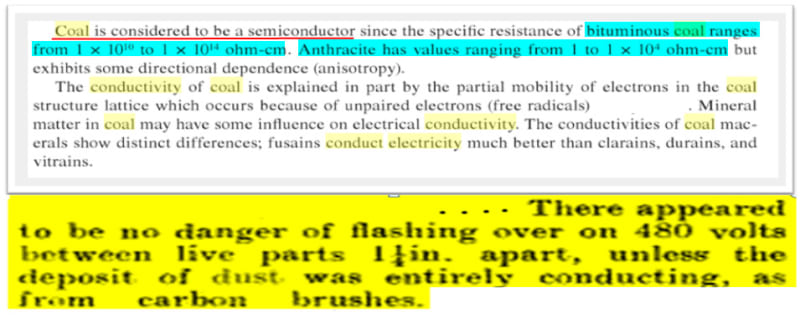Hi, I hope this is the right place to post this question.
I have an arc-flash incident, with known presence of coal dust accumulation and high humidity environment in the electrical room.
From my current readings, I note that some coal type are conductive and some are not. I am looking for literature review with reference to the concentration of coal dust required to cause an arc-flash.
Would an arc-flash requires airborne coal dust/particle, or by way of surface tracking plus sufficient mositure content could easily lead to arc-flash?
I have an arc-flash incident, with known presence of coal dust accumulation and high humidity environment in the electrical room.
From my current readings, I note that some coal type are conductive and some are not. I am looking for literature review with reference to the concentration of coal dust required to cause an arc-flash.
Would an arc-flash requires airborne coal dust/particle, or by way of surface tracking plus sufficient mositure content could easily lead to arc-flash?

